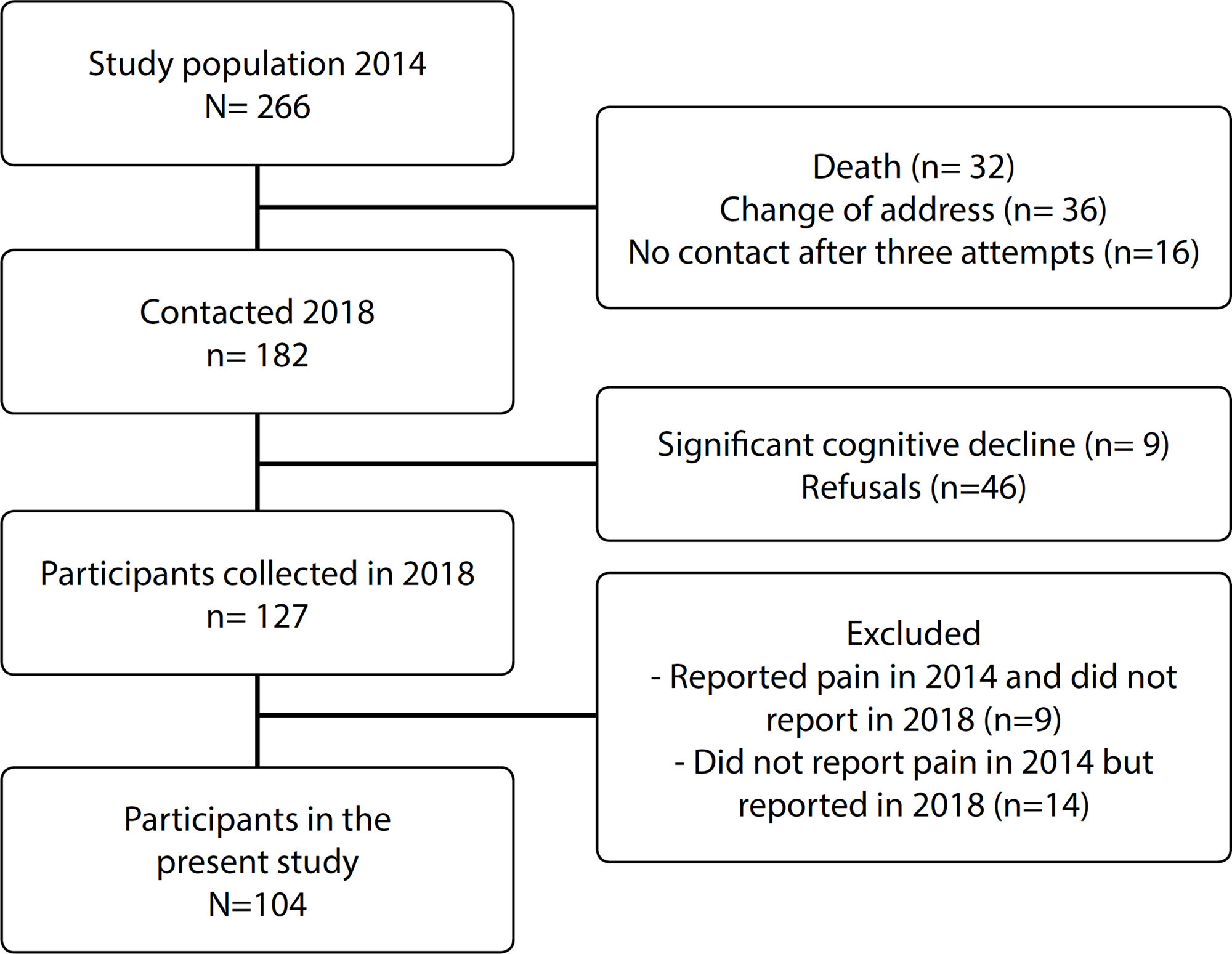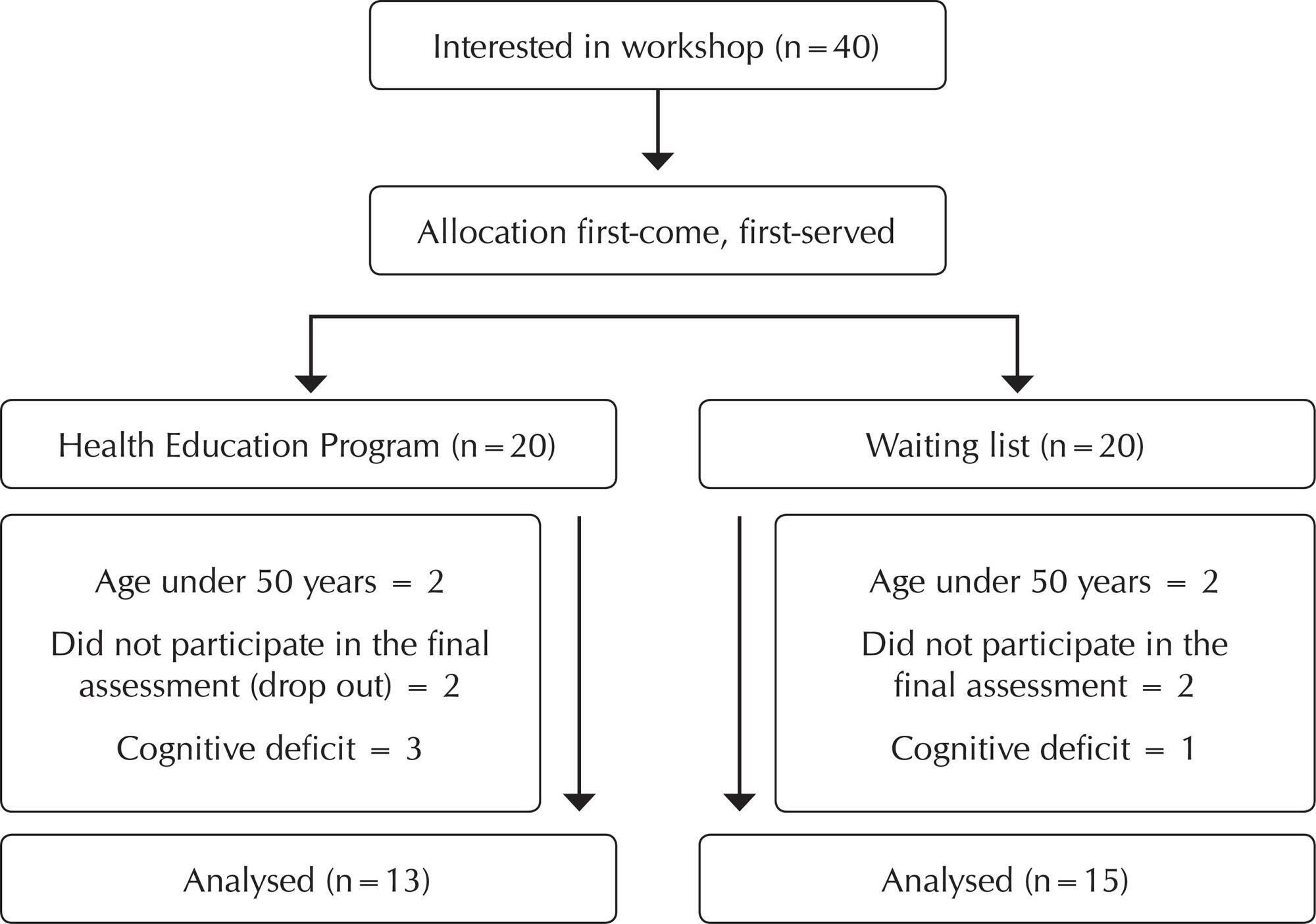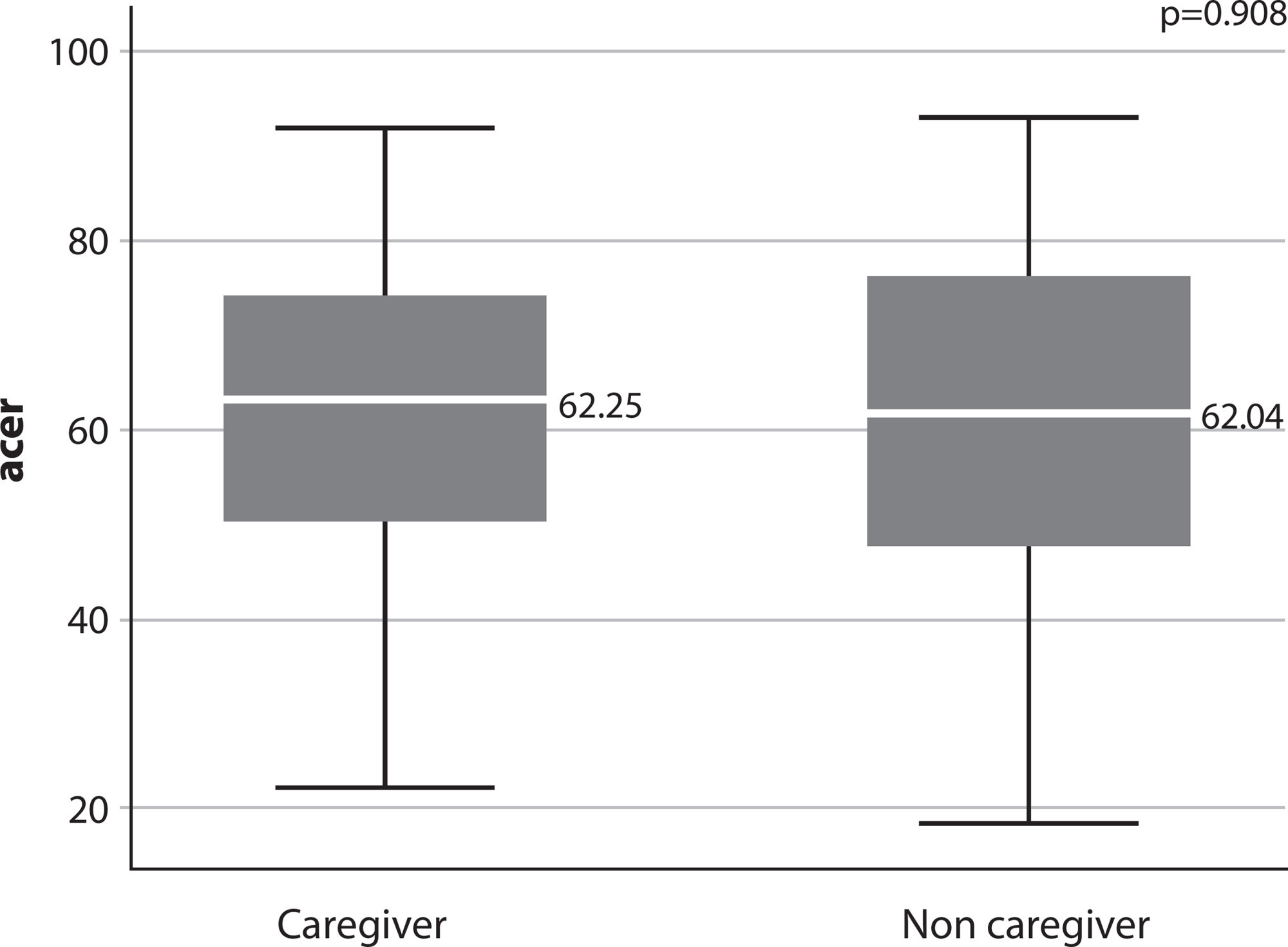-
ORIGINAL ARTICLE07-28-2021
Cognitive capacity and functional development assessment in elderly people with Type 2 Diabetes Mellitus
Revista Brasileira de Enfermagem. 2021;74(5):e20190306
Abstract
ORIGINAL ARTICLECognitive capacity and functional development assessment in elderly people with Type 2 Diabetes Mellitus
Revista Brasileira de Enfermagem. 2021;74(5):e20190306
DOI 10.1590/0034-7167-2019-0306
Views0See moreABSTRACT
Objective:
to analyze the cognitive capacity and functional development of the elderly with and without diabetes.
Methods:
case-control study, comparing elderly people with and without diabetes. 218 patients interviewed in outpatient clinics: geriatrics and endocrinology. Validated instruments were used for cognitive and functional assessment.
Results:
people with diabetes had low scores on cognitive tests. HbA1c and education were related to memory loss, compromising the basic and instrumental activities of daily life.
Conclusion:
this study evaluated that high glycemic values affect the autonomy of the elderly, compromising cognition and functional performance in activities of daily living.
-
05-21-2021
Influence of chronic pain on cognitive performance in elderly caregivers: a longitudinal study
Revista Brasileira de Enfermagem. 2021;74:e20200412
Abstract
Influence of chronic pain on cognitive performance in elderly caregivers: a longitudinal study
Revista Brasileira de Enfermagem. 2021;74:e20200412
DOI 10.1590/0034-7167-2020-0412
Views0See moreABSTRACT
Objective:
to compare cognitive performance of elderly caregivers with and without chronic pain over four years and verify the effect of pain intensity on cognitive performance of elderly caregivers with chronic pain.
Method:
a longitudinal study with data collected in 2014 and 2018. Community-dwelling elderly caregivers of a Brazilian city participated in the study. Cognition was assessed using the Addenbrooke’s Cognitive Examination instrument. Pain was assessed by an 11-point scale. For data analysis, a mixed linear model and ANCOVA with a 5% significance level were used.
Results:
they were divided into two groups. A cognitive decline over four years was found in elderly people with pain (p=0.02; 95%CI=0.32-4.25), while those without pain did not show a significant change.
Conclusion:
the results show that elderly caregivers with pain had a worse cognitive performance, but when comparing groups with the ANCOVA test for intergroup analysis, there was no difference in cognitive performance.

-
01-01-2017
Effects of a Health Education program on cognition, mood and functional capacity
Revista Brasileira de Enfermagem. 2017;70(4):814-821
Abstract
Effects of a Health Education program on cognition, mood and functional capacity
Revista Brasileira de Enfermagem. 2017;70(4):814-821
DOI 10.1590/0034-7167-2016-0638
Views0See moreABSTRACT
Objective:
Assess the effect of a Health Education (HE) program on cognition, mood and functional capacity of participants in a University of The Third Age (U3A).
Method:
Controlled clinical trial. The HE Program consisted of 10 sessions with group dynamics, including orientations on disease prevention and cognitive stimulation exercises, lasting four months. Intervention Group (IG) n=13; and Control Group (CG) n=15. All were assessed at the start and end of the study, using Addenbrook´s Cognitive Examination-Revised (ACE-R), Beck Depression and Anxiety Inventory (BDI/BAI) and Functional Independence Measure (FIM).
Results:
Significant improvements were observed for the IG when comparing the total ACE-R score (p=0.001) and memory domain (p=0.011) before and after the intervention. For the CG, improvement was found in the memory domain only (p=0.027).
Conclusion:
a HE intervention program benefits the improvement in cognitive performance, particularly the memory of adults and active elderly who participated in a U3A.





